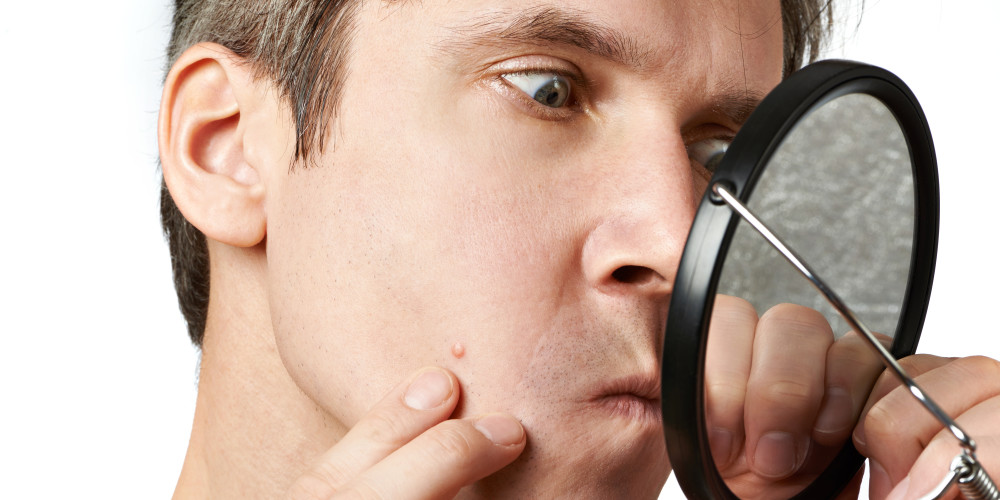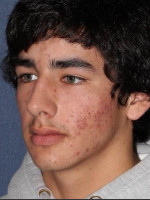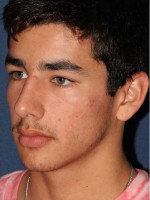Ins and Outs of Male Acne

By Dr. Jordan V. Wang, MD, MBE
Although acne is often associated with both younger and adult females, studies have shown that male acne is also relatively common. While the basics of acne management remain fairly similar, learning how to navigate the subtle differences for men is essential.
Acne Causes
Acne is thought to be caused by several different factors. Sebaceous glands on the face secrete oil, or sebum, that when increased can block pores or openings in the skin. These blocked pores can trap bacteria inside, which can then start to multiply. Significant stretching of this small pocket can cause inflammation and result in the formation of a pimple. Increased stress is generally believed to play a key role in the worsening of acne.
Acne Treatment Options
Various over-the-counter treatment options are available. Generally, these are sufficient for the management of mild acne. Effective products may include medications such as benzoyl peroxide, salicylic acid, and the newly approved adapalene. Benzoyl peroxide kills bacteria and also comes in a face wash for more sensitive skin as opposed to a cream. Salicylic acid helps to exfoliate and unclog pores. Adapalene helps to regulate skin cell turnover and prevent the formation of whiteheads and blackheads. All moisturizers or skin products should ideally be non-comedogenic or non-pore clogging. Faces should be washed daily and also after work-outs with gentle cleansers.
For more moderate-to-severe acne, prescription medications in addition to over-the-counter products are helpful. Oral antibiotics, such as doxycycline, may help to improve the redder inflammatory pimples. Topical tretinoin can help prevent comedonal acne, which are the smaller whiteheads and blackheads. If acne is severe enough or does not respond to various treatments, then a course of isotretinoin may be beneficial. Chemical peels and laser or light treatments may also prove to be useful in the right patients. Seeing a dermatologist is crucial for determining the proper treatment plan.
Steroid Use
Steroids have long been known to be connected with acne. Whether it's strong topical steroids, oral steroids prescribed for illnesses, or anabolic steroids, each can cause acne. The use of anabolic steroids is more frequent in men who are athletes or bodybuilders trying to build muscle mass. Some supplements may also contain unknown steroid ingredients. The acne related to steroid use is generally more inflammatory and cystic appearing. Regular treatments can be ineffective; however, refraining from further steroid use will typically improve the acne.
Folliculitis
Males may also develop other problems that can mimic acne to the untrained eye. One such disorder is folliculitis. Frequent shaving can often cause irritation and breakdown of the skin, especially if closely shaven using a blade. This allows bacteria to enter cuts and hair follicles causing redness and bumps that may resemble acne. Modifying shaving techniques and frequency can help, in addition to topical treatments.
Dealing with male acne can often be difficult, so seeing an experienced clinician may offer the best outcomes.


